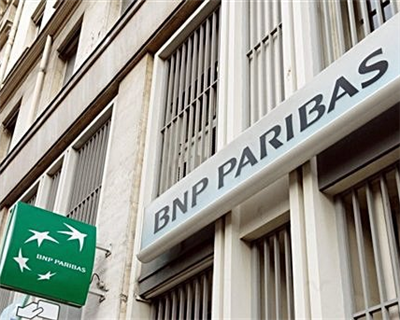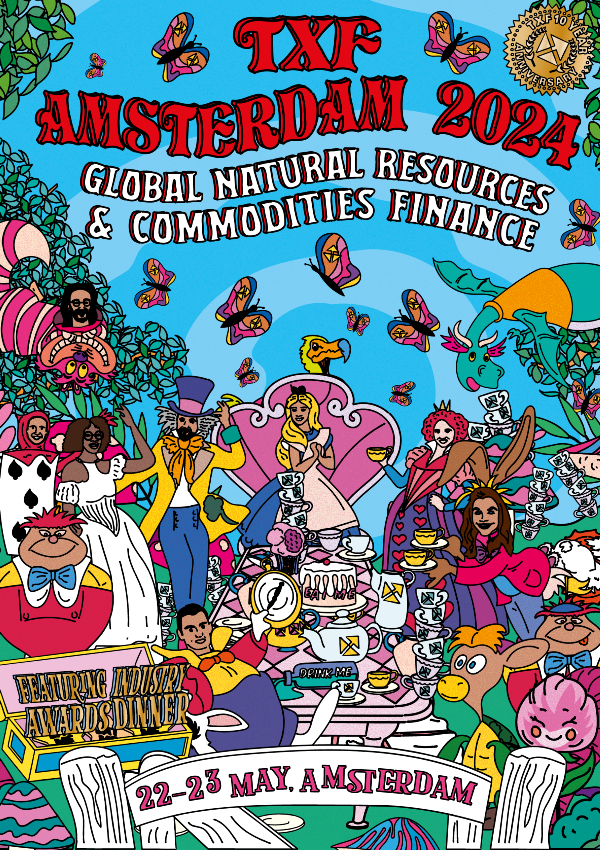Export finance head interview – BNP Paribas
TXF talks to BNP Paribas about some of the major trends impacting the export credit sector at the present time.

Yasser Henda, global head of export finance, ~BNP Paribas^ (BNPP), in Paris
TXF: What is the present state of the export finance sector, and how is BNPP’s business line doing?
The market is in good shape, particularly when compared to the medium and long-term business sector of a couple of years ago. There is strong competition and some new players within export finance.
As for our own business line, we are in growth mode – we maintain as well as continue to develop our global franchise. The expertise of BNP Paribas is there across the board and this is something our clients recognise. There is selectivity – it is not shrinkage, but we are much more focused overall.
TXF: How do you view competition currently?
There is an odd mix as far as competition is concerned. We see niche players and global/expert players – and there is a real difference between the two sides. With some of the niche players we see them going for one segment, one sector or one type of client. They have a role to play.
TXF: How is pricing being affected by liquidity and competition?
 The competition is being driven more and more by the price – and pricing is going down. Economies are still fragile, and events such as the recent disruption in the US with the closing of government offices do not help. What sort of impact this may have on how banks approach pricing remains to be seen.
The competition is being driven more and more by the price – and pricing is going down. Economies are still fragile, and events such as the recent disruption in the US with the closing of government offices do not help. What sort of impact this may have on how banks approach pricing remains to be seen.
As a bank we have gone through the deleveraging process quickly – and we are now moving ahead. It is not a short-term undertaking. We need to ensure the product works for all parties and all stakeholders. Clients want you there for the long-term – whether the market is good or bad.
Pricing has been going down and in some sectors more rapidly than others. The dropping of price by some of the competition can work in our favour as sometimes there are situations where the competitors take pricing too low, and the service running alongside this may be cut accordingly. So, for a corporate, sometimes cheap can be costly. We believe in competition. But competition should be healthy and ensure a satisfactory price for clients as well as re-engineering the industry for solutions.
TXF: How do you see the relationships now between export finance and other products in the armoury of trade banks?
We seek solutions with other trade products mostly with project finance, shipping, mining and some other natural resource development projects.There is also a slow transition with capital markets products. Some investors or project sponsors will use this with a good and positive spin. However, one wouldn’t expect this to be a component to be rapidly established because there are some cultural distinctions between export finance and the capital markets. The increased use of the capital markets within export finance will depend ultimately on where export finance is heading as a sector. The most important thing for the greater involvement of alternative investments will be to make export finance more attractive – and that is an education thing. Genrally speaking, not only for the export finance business, some geographies are already much closer to the use of capital markets than others – for example, North America, where they are quite familiar with its involvement.
TXF: How has your BNPP been affected by regulation a) Basel III b) environmental c) OECD d) compliance ?
Regulations are being looked at carefully in all quarters. We have already spent, and continue to spend a lot of time and resources looking at the implementation of Basel III. In particular, the leverage ratio for export finance needs to be more in line – and hopefully an improved situation will come in time before full implementation.
Pricing has been going down and in some sectors more rapidly than others. The dropping of price by some of the competition can work in our favour as sometimes there are situations where the competitors take pricing too low, and the service running alongside this may be cut accordingly.
Environmentally, we adhere to the Equator Principles.At first it was looked at in project finance as difficult in some instances, but now it is very much the norm. This and other environmental practices have been adapted and adopted, with the support of ECAs and they are to the benefit of the business. Compliance and corporate & social responsibility matters are also important. We are and need to be responsible. These are not level playing fields across the globe, although given time it should eventually become so.
TXF: Where do you think BNPP has a real advantage in the market?
We have a global franchise, with strong expertise close to our clients. These relationships are really valuable and we work hard for our clients in all aspects of the business. They appreciate our strong focus on finding the right solutions for them. And they like the transaction engineering that we ultimately deliver.
TXF: In what ways have the ECAs changed in the way they operate?
The new breed of ECAs are supporting their economies as their industries grow. And by so doing, we see a big push to support what they see as their exporting ‘champions’. Traditional ECAs have had to evolve, and today that evolution continues at quite a rapid rate as the agencies respond to quite volatile economic conditions impacting exporters.
There is an odd mix as far as competition is concerned. We see niche players and global/ expert players – and there is a real difference between the two sides.
Traditional ECAs are desperate to ensure that they do not have any further erosion of their market share. As such, they have become flexible, they have changed the rules regarding national content in many cases, the places they can operate in, the structures they will support, while also expanding direct lending and introducing capital market structures etc. The fact that the market has changed has pushed the agencies to respond and change also – and overall they have done this well. The Nordic ECAs have been particularly inventive and pragmatic at the same time. And US ExIm has been immensely active and innovative, with employment being a key factor in their drive forward. As an agency it has greatly helped the export profile with its direct lending and capital market programmes. Coface in France is also now looking at refinancing guarantees and bond issues.
TXF: How important is it for you to move assets off-balance sheet?
It is important to widen the syndicated market for export finance. Better distribution will free up more capital, and this is critical. This today is a integral part of what we should be doing – as the freeing up of capital is what the regulators are pushing us towards.
TXF: How do you see the future prospects for the sector?
The market has proven that there is a strong demand for the export finance product. And while we debate the need to move assets off-balance sheet, we know there is the need for a happy balance of banks and other investors in deals. Without the banks you would lose the overall risk analysis and knowledge of the product. Increasingly we are seeing very large deals, and more investors are required. The ability of ECAs to lend directly has really helped in these situations. It has been a particularly positive development because it has complemented funding plans. It is not the only solution, you do need commercial bank involvement. But it does need to be said that it is not a level playing field for the ECAs. The real win-win situation is a combination of direct lending elements and commercial bank involvement and funding. With such a formula, the future is secure.
The Next article: Export finance head interview – Citi






